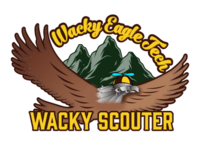“Mr. Smith, can you be a counselor for XYZ merit badge?” We’ve all heard questions like that, and we’ve all wanted to say – or actually did say – yes. Unless the topic is very specialized, such as nuclear medicine or truck transportation or scuba diving, Scouters are usually willing to help out: “Personal Fitness? Sure. I once belonged to a gym.” “Citizenship in the Nation. No problem. I voted back in … let me see, was it 2006?” “Space Exploration? Why not? I’ve been to Cape Kennedy.”
The problem with helping out like that is that it really doesn’t help at all. Oh sure, it helps the Scout earn a badge, but the badge is not the goal – or should I say goals? The first goal of the merit badge program is to expose the Scout to a topic that could well become a career or lifelong hobby. The second goal is to connect him with an adult in the community who could serve as a mentor. The third goal is to teach him how to take initiative, pick up the phone, and interact with someone he doesn’t know.
When we short-circuit the process, we short-circuit the Scout’s opportunity to learn all he can from the merit badge program.
In 1973, an Ohio Scout named Ken Drayton decided he wanted to earn the new Space Exploration merit badge. There were no counselors for the badge in his small town, so he decided to track down Neil Armstrong – yes, that Neil Armstrong! – and see if he would counsel the badge. Drayton actually drove 150 miles to Armstrong’s home, showed him the work he’d done, and convinced him to serve as a counselor. Armstrong agreed, but asked him to do some additional work. A few weeks later, Armstrong sent his Scoutmaster a letter certifying Drayton’s award. (This was in the days before merit badge counselors had to be approved and registered in that position.)
Drayton told his story in the July/August 1999 issue of American Heritage. His story hints at what he learned – and what every Scout can learn from every merit badge. Consider these excerpts:
- “With a little amateur detective work, I was able to find out where he lived.”
- “Mustering every ounce of bravado I had, I pulled into his dusty driveway….”
- “Taking a deep breath, I knocked on the back door.”
- “Once back in my hometown, I worked on my assignment for Mr. Armstrong as diligently as if it had been a doctoral thesis….”
- “I spent the rest of the evening [when Armstrong’s letter arrived] floating as high as a lunar module.”
What would Drayton have learned if he’d asked Mr. Smith to counsel the badge and Mr. Smith had said yes?
Republished with permission of Mark Ray at http://www.eaglebook.com/

